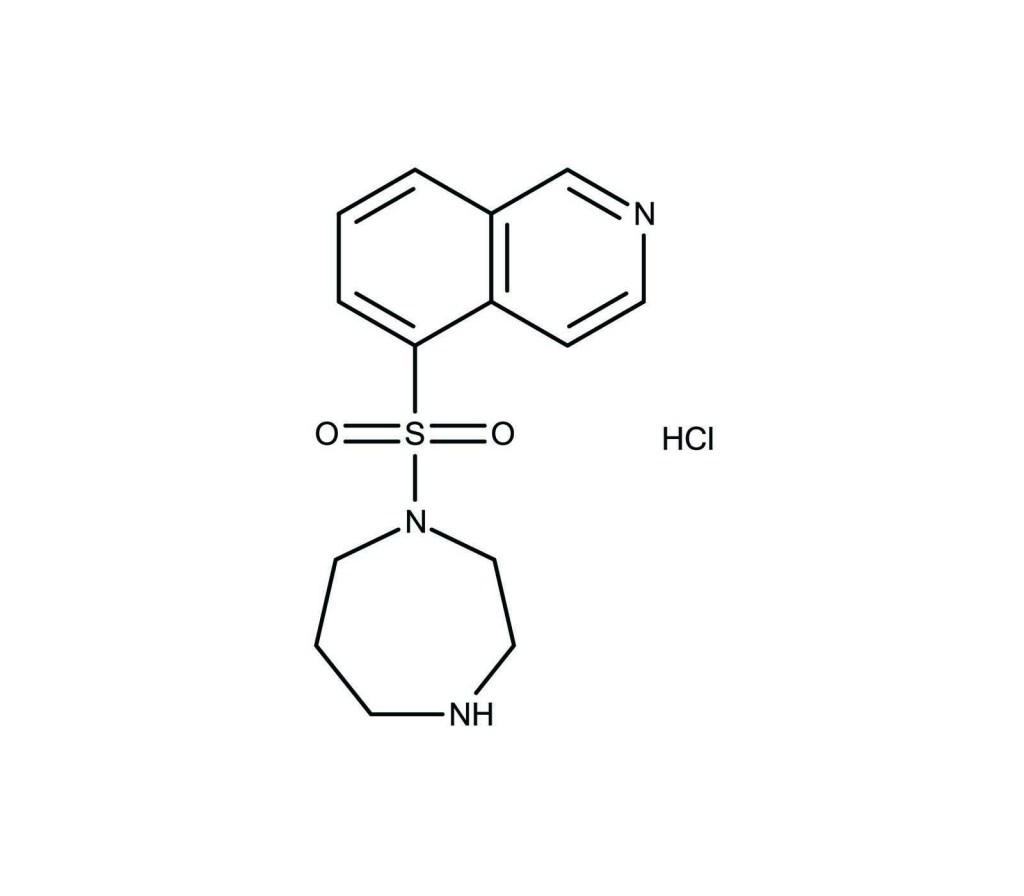Fasudil . Hydrochloride is a potent, cell-permeable, and selective inhibitor of Rho-associated protein kinase (ROCK), with an IC50 of approximately 10.7 µM. It is widely used in research involving vascular biology, neuroprotection, and cytoskeletal dynamics. Fasudil inhibits ROCK-mediated phosphorylation of myosin light chain, leading to smooth muscle relaxation and reduced cellular contractility.
Key features and applications include:
- Selective ROCK Inhibition: Targets ROCK1 and ROCK2, key regulators of actin cytoskeleton and cell motility.
- Neuroprotective Effects: Reduces axonal degeneration and apoptosis in neuronal models; protects against hypoxia-reoxygenation injury.
- Anti-Inflammatory Activity: Inhibits neutrophil transendothelial migration and microglial activation.
- Vascular Relaxation: Used in studies of cerebral vasospasm and pulmonary hypertension due to its vasodilatory effects.
- Bone Regeneration: Promotes osteoblastic differentiation via BMP-2 signaling.
Research Applications:
- Neurodegeneration and stroke models
- Vascular biology and endothelial function
- Inflammation and immune cell migration
- Bone and cartilage tissue engineering
- Cancer cell invasion and metastasis
Relevant disease states include:
- Cerebral Vasospasm: Clinically used in some countries to treat subarachnoid hemorrhage-induced vasospasm.
- Neurodegenerative Diseases: Investigated for its ability to protect neurons in models of ALS, Parkinson’s, and Alzheimer’s disease.
- Pulmonary Hypertension: Explored for its role in reducing vascular resistance and remodeling.
- Osteoporosis and Bone Healing: Enhances osteoblast activity and bone matrix production.
- Cancer: Shown to suppress MMP-2 expression and induce apoptosis in glioblastoma and other tumor models.
Shipping: Available products typically ship within 24/48h, via priority shipping.
Do you need support? Contact Customer Service or Technical Support.
Online Account
Access or Create Your Account
| Regulatory Status |
RUO – Research Use Only |
|---|
Last modified: July 28, 2025
 Lab Essentials
Lab Essentials AMPIVIEW® RNA probes
AMPIVIEW® RNA probes Enabling Your Projects
Enabling Your Projects  GMP Services
GMP Services Bulk Solutions
Bulk Solutions Research Travel Grant
Research Travel Grant Have You Published Using an Enzo Product?
Have You Published Using an Enzo Product?

